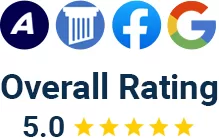H1-B Visas for Professionals in a Specialty Occupation
Who Is Eligible?
The H-1B nonimmigrant visa category enables U.S. businesses to temporarily hire foreign nationals for specialty occupations. A “specialty occupation” necessitates the theoretical and practical application of highly specialized knowledge, typically requiring a minimum of a bachelor’s or higher degree in the specific field for entry into the occupation in the United States. In specific situations, the degree requirement may be waived based on the foreign national’s equivalent experience within the specialty occupation.
Applying for an H-1B Visa
The H-1B visa application process involves several steps and considerations. All H-1B applicants are subject to an annual quota, with exemptions for certain organizations or if the applicant has previously been counted against the cap. Due to high demand, a lottery system is employed when the number of visa applications exceeds the available slots.
The annual H-1B quota is counted within the federal fiscal year, spanning from October 1 to September 30. Applications for cap-subject H-1B visas are typically accepted in March/April each year, allowing for filing up to six months before the employment start date. In Fiscal Year 2021, USCIS introduced an electronic registration process. Employers must submit an H-1B registration through USCIS’s online system in March, and a lottery is conducted to select registrations. If chosen, the employer must file a complete H-1B petition within 90 days.
To initiate the H-1B petition, the employer must first file a Labor Condition Application (LCA) with the U.S. Department of Labor, committing to paying the H-1B employee the minimum prevailing wage. Upon LCA approval, the employer submits the petition for a nonimmigrant work visa to USCIS. Documentation must establish that the position is a specialty occupation typically requiring a minimum of a bachelor’s degree. Simultaneously, the employee demonstrates qualification for the specialty occupation and the specific job by presenting a U.S. bachelor’s degree or its equivalent.
If the H-1B petition is approved, USCIS issues an I-797 Approval Notice. For foreign nationals within the U.S. in another nonimmigrant status, they can file their H-1B petition as a change of status petition, automatically transitioning to H-1B status upon approval.
Typically if a foreign national is currently outside the United States, they must initiate the process by applying for an H-1B visa in their passport before entering the country to work in H-1B status. The application involves completing the U.S. Department of State’s online visa application—DS-160, paying the requisite visa fee, and scheduling a visa appointment with a U.S. Embassy or Consulate abroad. Upon a successful visa appointment, the foreign national will obtain the H-1B visa in their passport. Subsequently, they can enter the United States utilizing both the H-1B visa in their passport and the I-797 Notice of Approval from USCIS.
Transferring the H-1B Visa to a New Employer
H-1B visa holders are able to change employers through the use of an H-1B transfer petition. The portability rules allow an employee to begin working for a new employer as soon as the H-1B portability petition has been filed.
Family of Visa Holder
Dependents of H-1B visa holders (spouse and unmarried children under the age of 21) may apply for the H-4 visa. The H-4 visa status allows dependents of the H-1B visa to live in the United States and attend school. The spouse of an H-1B visa holder who has a pending permanent resident process may be eligible for work authorization through an Employment Authorization Document (EAD).
